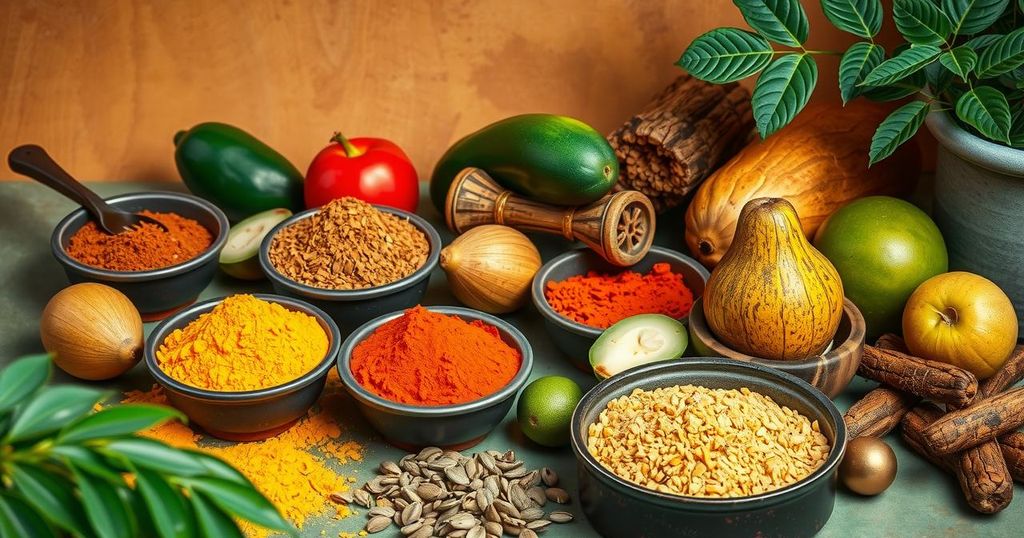Eric Adjepong: A Culinary Journey Connecting Culture and Identity

Eric Adjepong, known from “Top Chef,” discusses his cultural identity as a first-generation Ghanaian American and shares his upcoming projects: a restaurant in D.C. and a cookbook titled “Ghana to the World.” He emphasizes the influence of his heritage on his culinary journey, showcasing traditional ingredients in modern recipes. Adjepong stresses the significance of food in connecting with culture and community.
Eric Adjepong, a notable figure from the culinary show “Top Chef,” reflects on his cultural identity and culinary journey through his Ghanaian heritage. In a recent discussion, he shared insights on his upcoming projects, including a new Washington, D.C. restaurant, Elmina, and his cookbook, “Ghana to the World: Recipes and Stories That Look Forward While Honoring the Past.”
As a first-generation Ghanaian American, Adjepong attributes much of his worldview to his cultural background. He expresses gratitude for his culinary career, emphasizing how Ghanaian traditions influence the hospitality and warmth associated with food in his community. These aspects play a pivotal role in shaping his culinary identity.
Adjepong’s early years included living in Ghana, where he developed lasting memories of family and local culture. He recalls specific experiences, such as enjoying fried donuts from street vendors and collecting cherished toys at his grandparents’ home, which contributed to his understanding of both his roots and the culinary arts.
In discussing essential seasonings for cooking, Adjepong highlights the importance of curry powder, peri peri pepper, and a mix of warm spices, such as cinnamon and nutmeg. Additionally, he mentions a signature house seasoning from his mother that combines paprika and various herbs, creating a unique flavor profile for her dishes.
The cookbook features innovative recipes, including granola made with egusi seeds. Adjepong describes these seeds as earthy and rich in fiber, making them an inexpensive yet nutritionally dense ingredient. He demonstrates how traditional ingredients can be adapted into modern recipes, showcasing the versatility of Ghanaian cuisine.
When asked to differentiate between banku and fufu, Adjepong explains that fufu is made from cassava and plantain, while banku, which ferments cornmeal and flour, has a tangy flavor. Both serve as accompaniments to soups and stews, traditionally eaten with hands, fostering a direct connection to the food.
A personal favorite of Adjepong’s is sweet fried plantains, which he elevates with benne seed miso for an umami kick. He also expresses his fondness for stewed turkey wings, a dish with deep family roots, attributed to his aunt Agatha. The recipe reflects rich flavors, combining frying and stewing techniques.
One of the highlighted recipes from his cookbook is Egusi and Coconut Granola. The recipe combines oats, almonds, egusi seeds, coconut nectar, and other ingredients, showcasing the balance of sweetness and nutty flavors perfect for snacking or topping desserts.
Adjepong’s culinary ventures emphasize the importance of honoring cultural heritage while inviting innovation. Through his work, he aspires to share the essence of Ghanaian cuisine with the world, fostering appreciation for his roots and the flavors they offer.
Eric Adjepong’s culinary journey underscores the profound connection between cultural identity and food. His upcoming projects, including a restaurant and a cookbook, aim to share Ghanaian traditions with a broader audience. Adjepong’s personal experiences and innovative recipes highlight the richness of his heritage, demonstrating the significance of honoring the past while looking toward the future in the culinary arts.
Original Source: www.kcrw.com







